Transforming Tradition: Bombay Sweet Shop's Modern Take On Mithai in India
India’s Bombay Sweet Shop, modernises the traditional ‘mithai’ shop concept with contemporary ingredients, techniques and aesthetics.
22 January 2024
Share this exclusive content from Saladplate
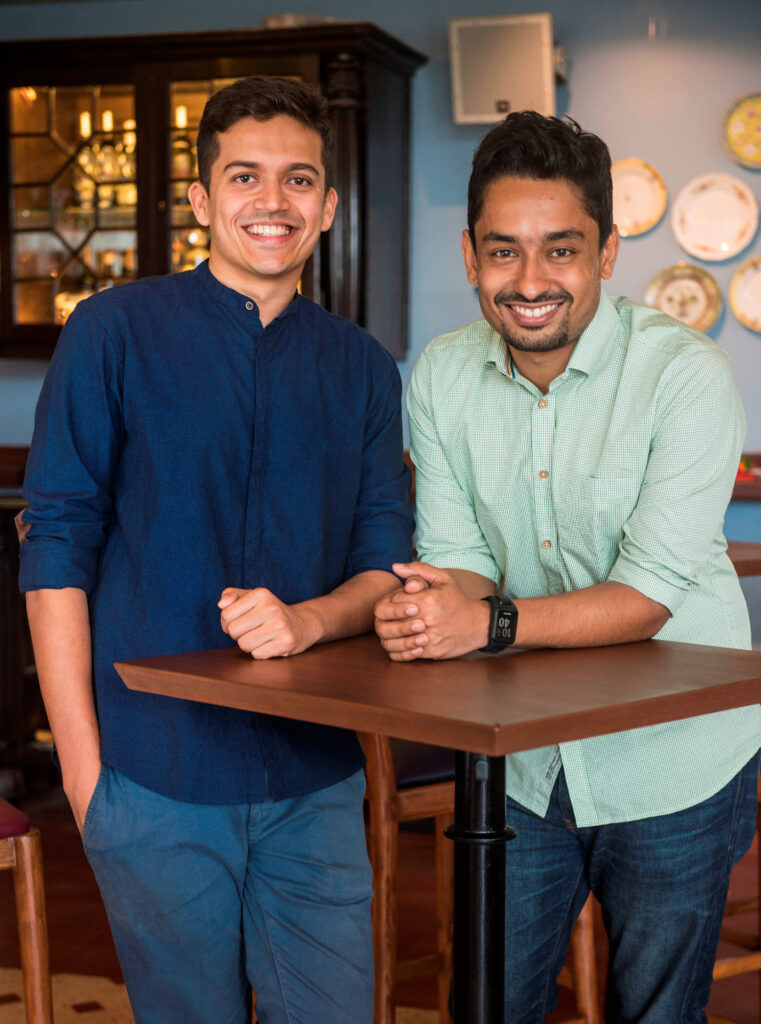
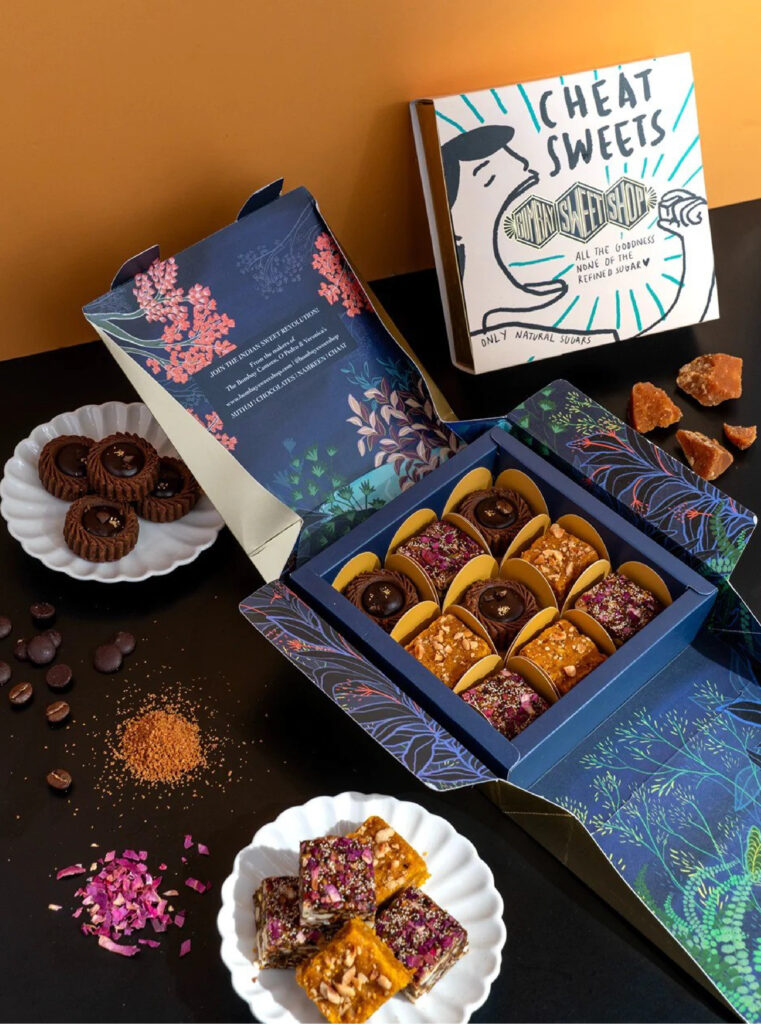
Brand founders Yash Bhange and Sameer Seth
Photo Credit: Bombay Sweet Shop
‘When you grow up with certain flavours, they are ingrained in you’, says Sameer Seth, one of the founders of the modern mithai brand, Bombay Sweet Shop.
Mithai (Indian sweets), are an integral part of Indian celebrations and are often used as prayer offerings. How did this traditional delicacy don a ‘luxurious’ and even ‘trendy’ avatar through the unique approach of 4-year-old Bombay Sweet Shop?
Founded by the team behind award-winning Mumbai restaurants The Bombay Canteen, O Pedro, Veronica’s and Papa’s – Yash Bhange, Sameer Seth and the celebrated chef, restaurateur and cookbook author, Late Floyd Cardoz. This venture takes inspiration from Yash’s encounters with Turkish Delight boutiques at the Istanbul airport and an idea to recreate that sense of luxury and global availability for traditional Indian sweets.
Four years after its inception, Bombay Sweet Shop boasts airport kiosks, two experience stores in Mumbai and an online presence that delivers pan-India. Plus, hopes to grow their presence internationally.
They offer a diverse range of traditional Indian sweets and confections, including barfis, laddoos, pedas and more, but with a contemporary twist and luxe ingredients aimed at captivating the younger generation and modern palates.
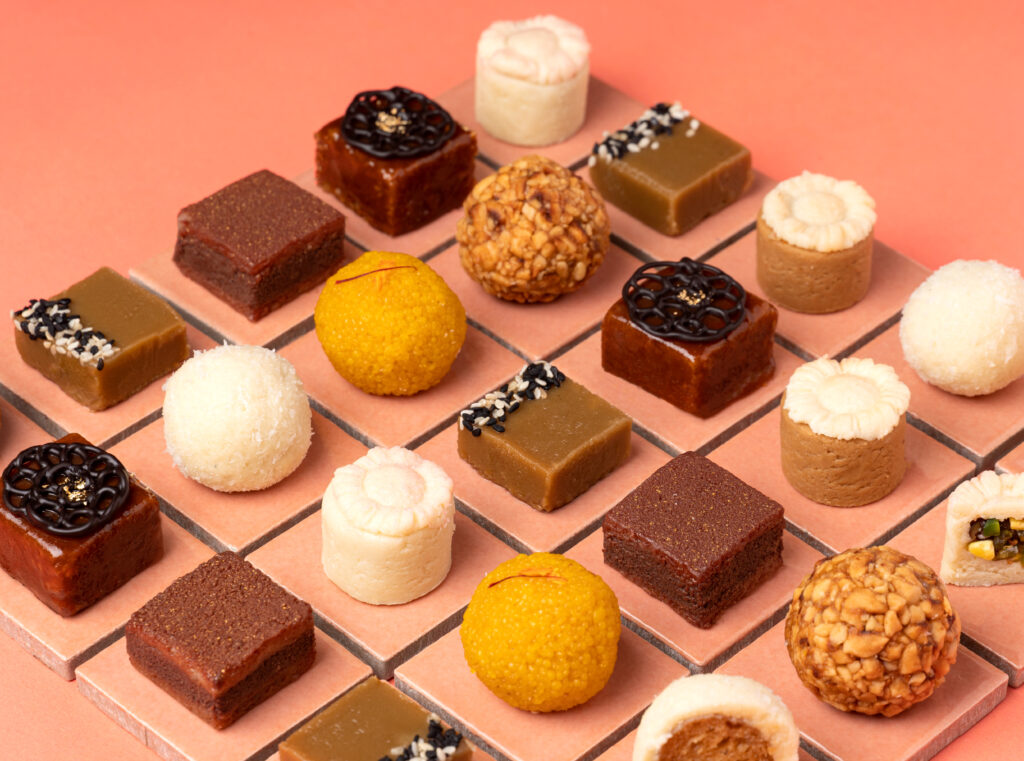
Photo Credit: Bombay Sweet Shop
This trend is similar to what we see with the modernisation of Chinese Mooncakes which are consumed during the Mid-autumn festival in parts of Asia. Luxury hotels in Asia have modernised traditional mooncakes by adding luxurious ingredients such as caviar, chocolate and even truffles while presenting them in highly giftable packaging.
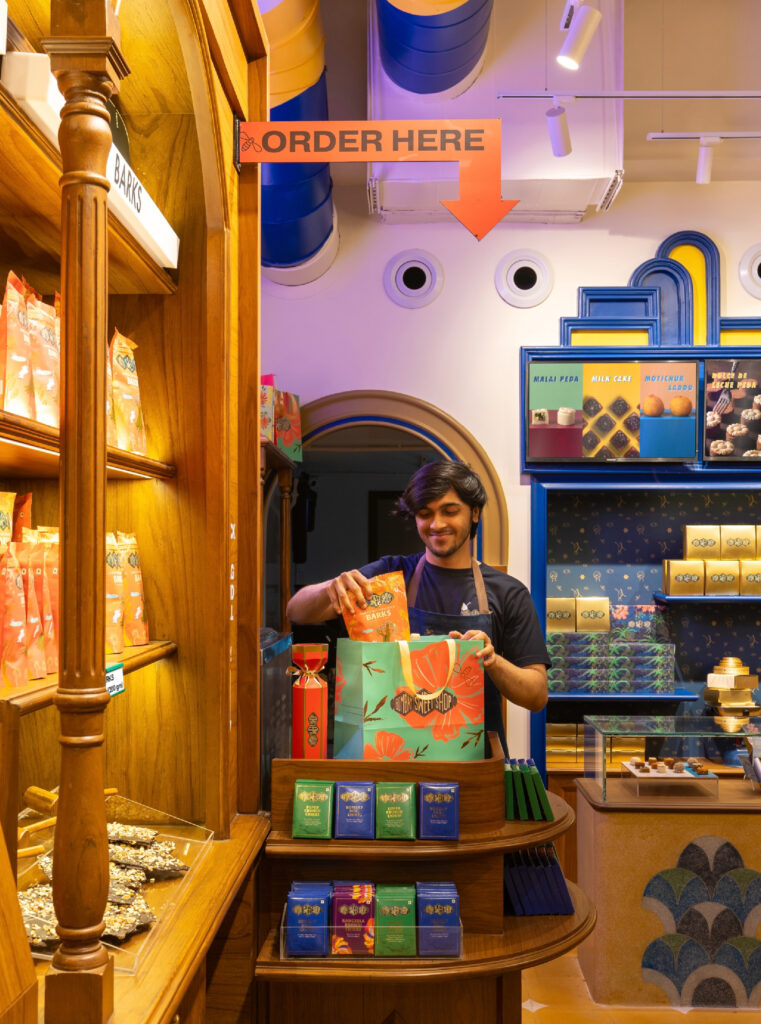
Photo Credit: Bombay Sweet Shop
In a similar vein, Bombay Sweet Shop distinguishes itself from traditional Indian mithai shops through its creative flavour pairings, incorporating unconventional-to-India ingredients such as chocolate, dulce de leche, berries and coffee. What sets them apart even further is their commitment to transparency, offering a detailed list of ingredients and thorough allergen labelling. This empowers customers to make informed decisions about their purchases, catering to a diverse range of dietary needs.
Furthermore, the shop’s commitment to accessibility is evident through its nationwide shipping service, making its offerings available to sweet tooths across India, all while maintaining an affordable price point.
Mithai, but not as you know it.
The founding team travelled around India to uncover rare and exciting mithai recipes and ideas, meeting mithaiwalas (sweets makers) that have shaped the country’s sweet history and putting their spin on generational techniques and recipes.
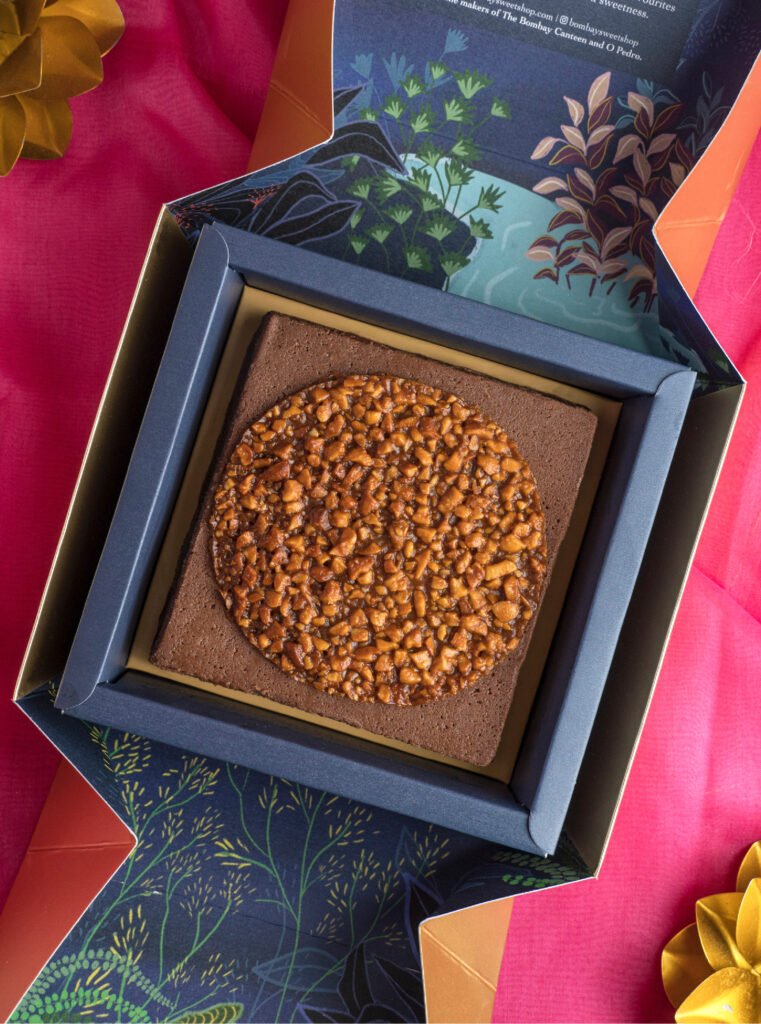
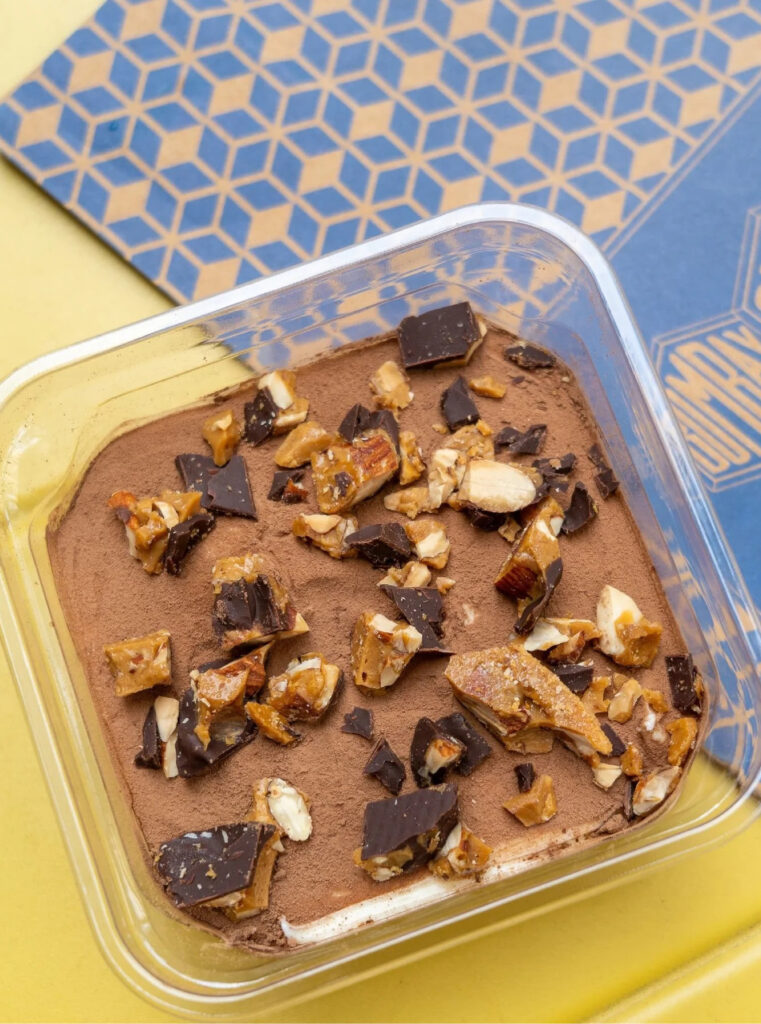
Photo Credit: Bombay Sweet Shop
Among their various standout treats is Bombay’s 3-Layer Chocolate Fudge, featuring two layers of 70% dark chocolate peda (milk cake) sandwiched between peanut chikki or brittle (made with sweet, sticky jaggery and roasted peanuts topped) with a peanut cashew tuille – this is an example how they modernise traditional and reinvent classics to create something new.
Equally noteworthy is the Coffee Rasgulla Tiramisu, a delightful combination of a Bengali speciality with an Italian classic. This dessert features coffee-infused ricotta balls layered with velvety mascarpone cream, sprinkled with almond brittle and generously dusted with cocoa powder — with this, reshaping the perception of Indian sweets. They also challenge the notion that sweets are unhealthy due to the use of refined sugar and flour by introducing the Cheat Sweets Box. The box consists of bite-sized nuggets like the Hazelnut Barfi (vegan, with dry fruits, nuts, jaggery, seeds, puffed amaranth, and cardamom), guilt-free Dark Chocolate Coffee Barfi (jaggery, coconut sugar, rich dark chocolate, and coffee ganache), and Hazelnut Besan Barfi (jaggery, ghee, Bengal gram flour). This curated box not only caters to those seeking healthier alternatives but also provides an option for the health-conscious to enjoy a tempting treat that has good-for-you ingredients.
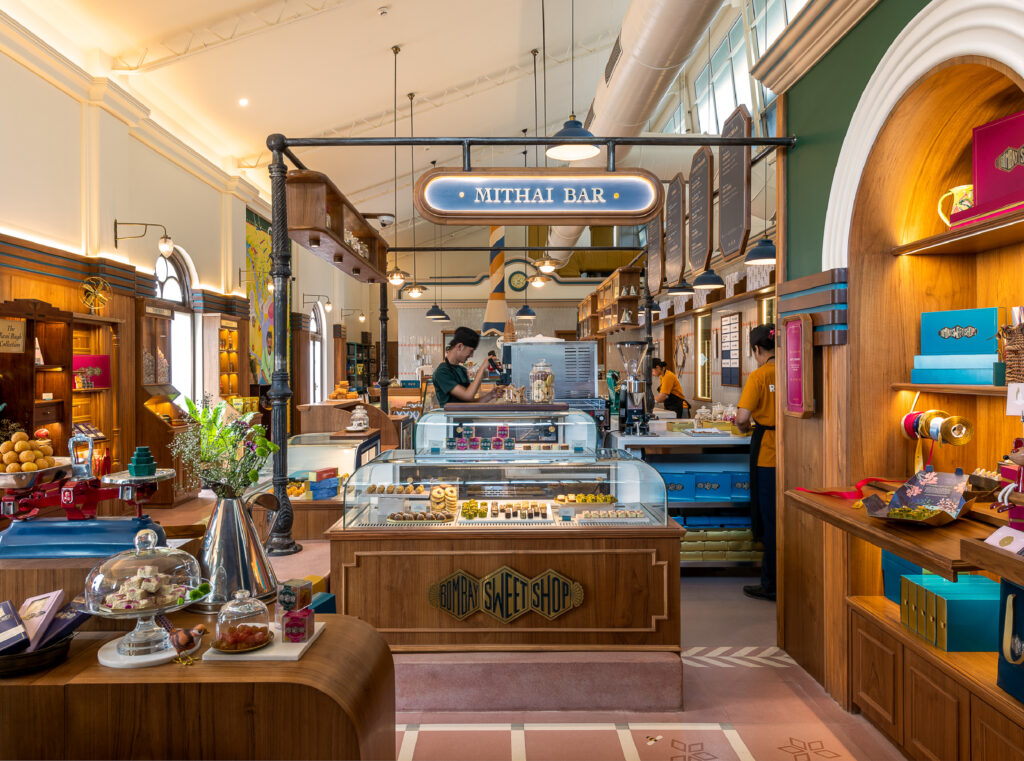
Photo Credit: Bombay Sweet Shop
Whimsically outfitted mithai shops — a far cry from traditional family-run establishments
Traditional family-run mithai shops often prefer functionality over aesthetics. These places are dimly lit, with glass cases of different mithai where you pick your favourites, the store owner puts them in the box and you’re on your way.
In comparison, Bombay Sweet Shop is what Vogue India described as a “Willy Wonka-meets-mithai world” — an experience-led take on the sweet-browsing exercise. Brightly lit, purposefully designed and in line with their brand’s objectives, the stores include whimsical touches such as a slot machine which offers the visitor a sample of namkeen (savoury treat) or the bark-breaking station where you can try out different flavours of chocolate mithai before you pick your favourite. Beyond its modern take on traditional Indian mithai, the store’s decor also pays homage to Indian culture by drawing inspiration from 20th-century cinema for its decor, giving it a nostalgic look for those wanting to relive the good old days
At Bombay Sweet Shop, the packaging is a huge part of the product’s appeal, and the physical stores boast ‘wrapping stations’ allowing consumers to customise and personalise. Seasonal and celebratory offerings are also something the brand has become synonymous with — From Kaju Marzipan Bon Bon with dark chocolate ganache and edible gold glitter for gifting, to the Indie Bar where mithai meets chocolate, their diverse offerings cater to all occasions on the Indian festive calendar.
Bombay Sweet Shop also has an excellent e-commerce storefront as they realise and capitalise on the gift-giving aspect of mithai purchases. The e-store commands 80% of all product sales among which 45% of the online sales are gift boxes in bulk quantities.
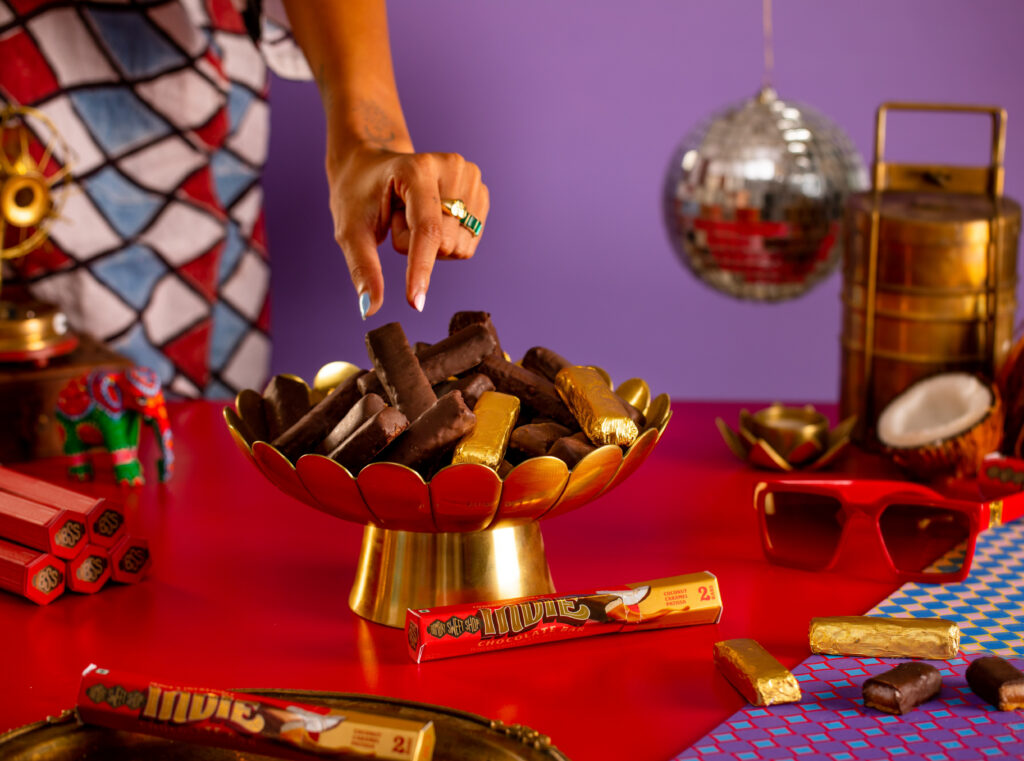
Photo Credit: Bombay Sweet Shop
The brand is a leading example of modernising tradition to reach a wider audience — the online and brick-and-mortar stores have garnered widespread attention, distinguishing themselves through a distinctive aesthetic and a bold willingness to experiment with traditional Indian sweets.
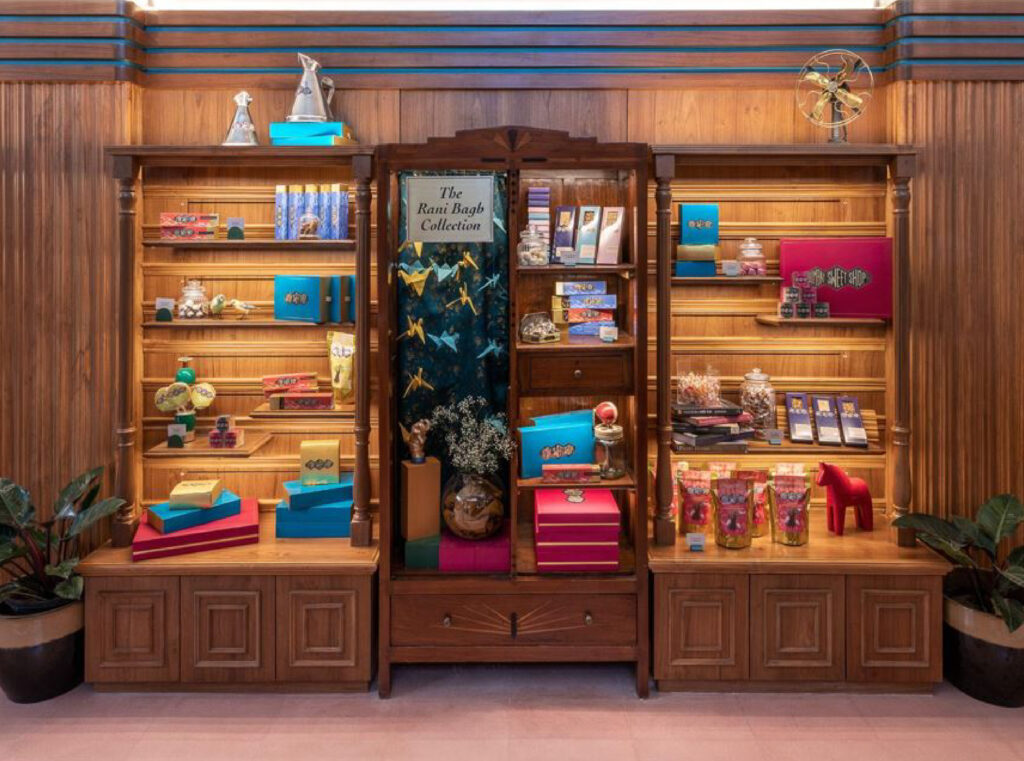
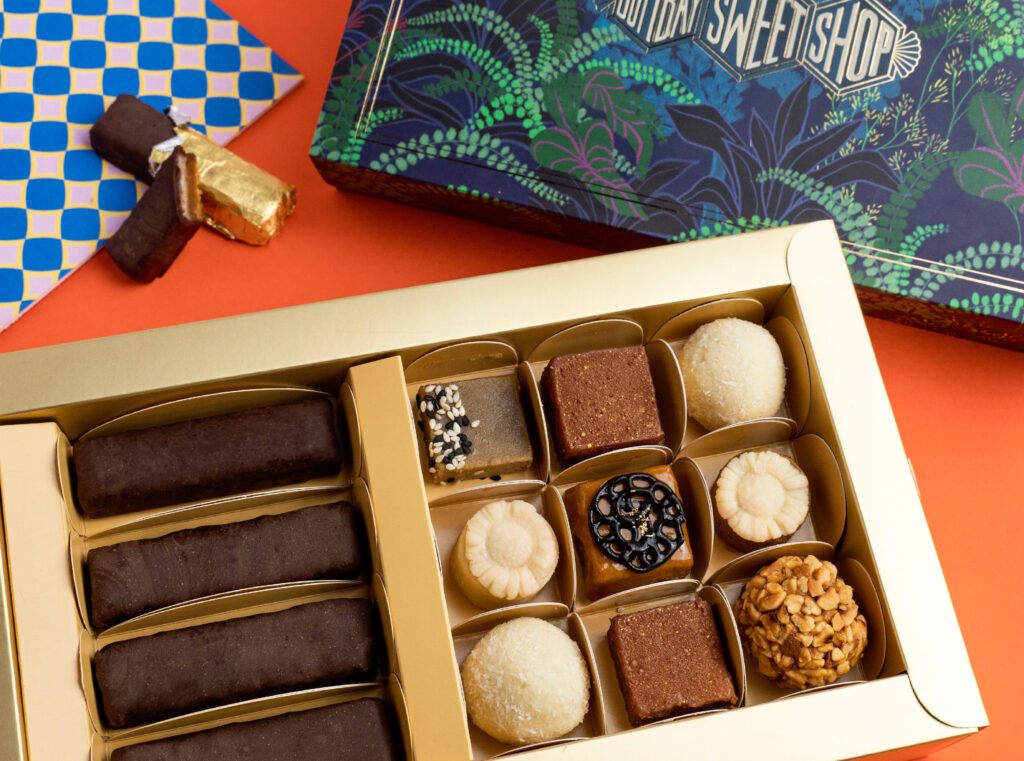
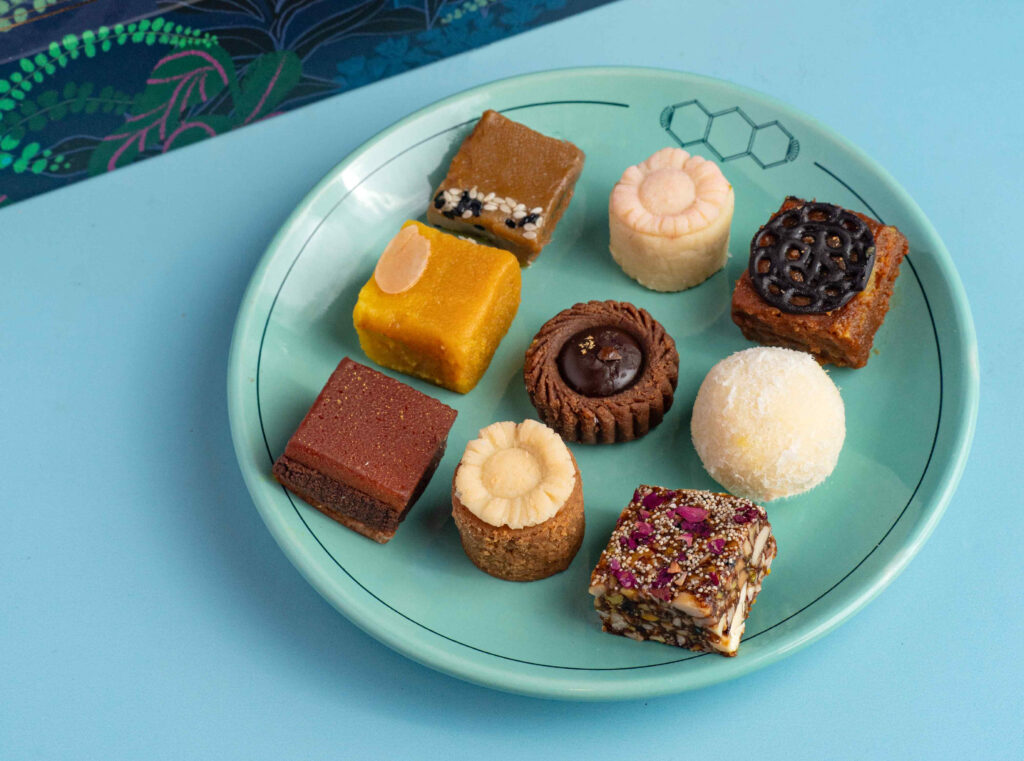
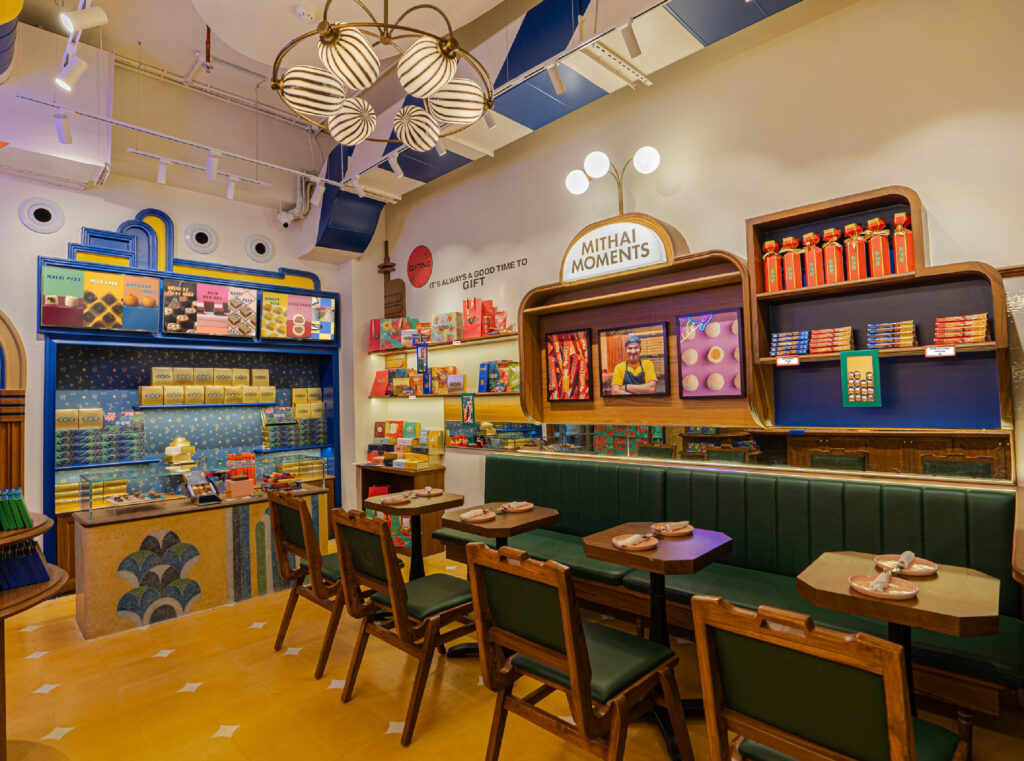
Photo Credit: Bombay Sweet Shop
Author: Priyanka C. Agarwal
Priyanka is a writer, editor and storyteller. Her words have appeared on the print and online pages of The South China Morning Post, SilverKris, Her World, The Michelin Guide, Time Out, and more. She has also created custom content for leading brands like Sentosa, Mediacorp Special Projects, Asia’s 50 Best, IKEA, and Meat and Livestock Australia. Her expertise includes food and drink, wellness, luxury and travel.
Author: Ishfat Tofajull
Ishfat Tofajull has been crafting content, marketing and trend-watching in Singapore’s F&B and lifestyle space for the past couple of years. She is passionate about all things food and social media.



